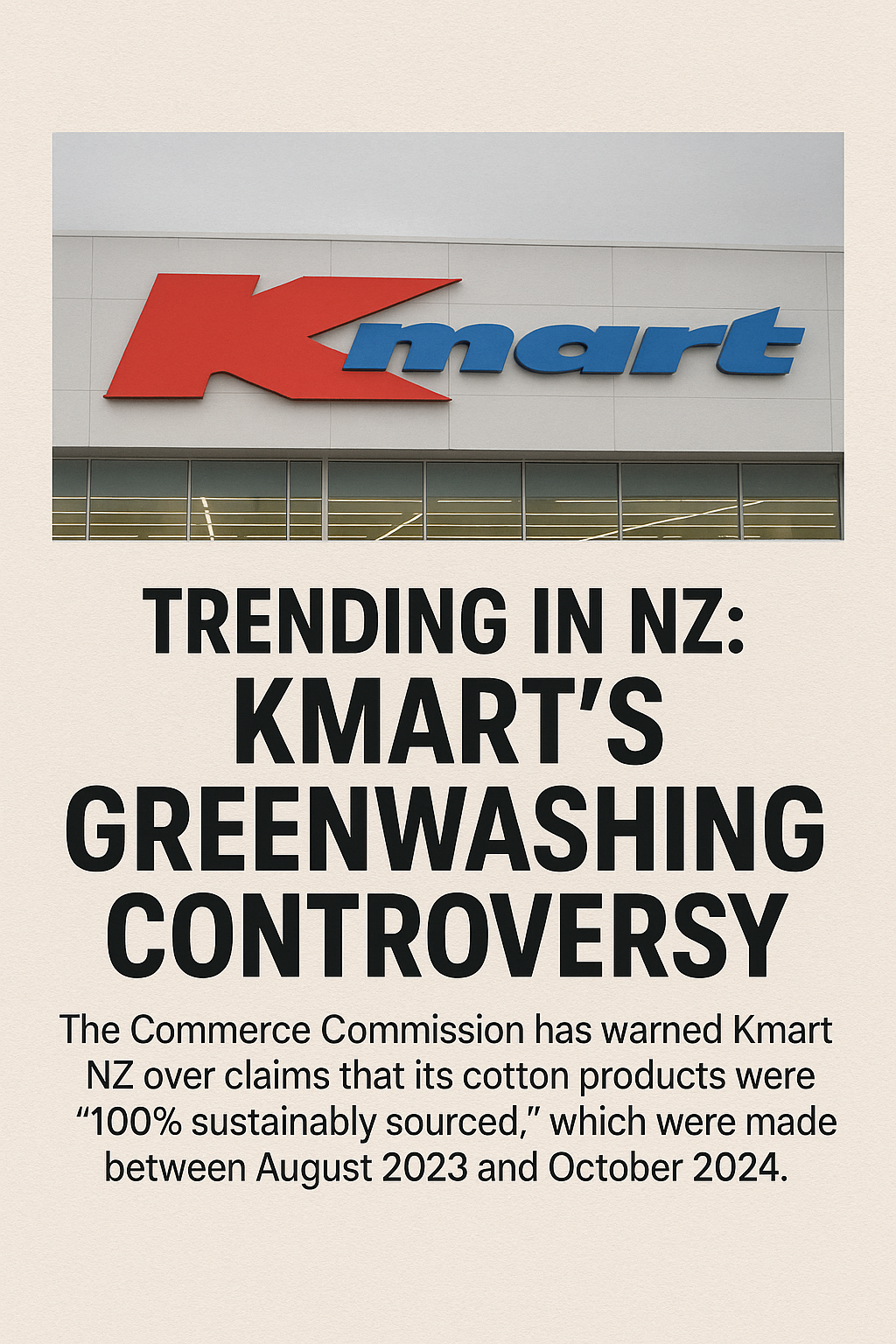
This week, Kmart NZ faced a Commerce Commission warning over its ‘100% sustainably sourced cotton’ claims. This situation is a cautionary tale about transparency, with important lessons for both businesses and eco-conscious shoppers who want to track down more ethical choices.
Kmart’s Cotton Claims and the Commerce Commission’s Findings
Kmart New Zealand promoted its clothing as made with “100% sustainably sourced cotton” on labels and through its website. These claims started appearing on products as shoppers became more interested in making green and ethical choices. The company said its cotton was from suppliers who use responsible growing practices and certifications that should stand up to scrutiny.
The Commerce Commission checked these statements and found Kmart didn’t always have the proof needed to back their claims. While some cotton was certified, Kmart lacked evidence that all products labelled this way met the “100% sustainably sourced” standard. This left consumers uncertain about whether the claims could be trusted.
According to New Zealand’s Fair Trading Act, businesses can’t make unsupported or misleading statements about their products. The Commission warned Kmart that any claim about sustainability or where materials come from needs to be both true and verifiable. If they’re not, a company risks breaking the law and, just as importantly, losing customers’ trust for good.
Why This Matters for Ethical Shopping
- Consumer Trust: Misleading green claims make it tough for everyday shoppers to spot the honest players. When companies exaggerate, trust in the entire “eco-friendly” market can take a dive.
- Market Integrity: When some businesses skirt the truth, others who really do invest in ethical practices face unfair competition. The pressure is on to look good, not actually be good – and that helps no one.
- Regulatory Oversight: The Commerce Commission’s action highlights that regulators are keeping an eye out for greenwashing. This move urges companies to take their messaging seriously, which could make standards higher across the board.
Key Voices and Industry Response
Vanessa Horne from the Commerce Commission put it clearly: “Consumers have a right to clear and accurate information… If you can’t back it up, don’t say it.” (1News)
This issue dominated coverage from news outlets like RNZ and others. The bottom line is that the burden falls on businesses to ensure their sustainability messaging is both accurate and honest. As a shopper, I look for specific explanations and independent certifications on claims. In my experience, companies that are actually transparent share more details and proof, not just catchphrases and pretty packaging.
What Honest Businesses Should Do
- Verify All Eco Claims: Trace the full supply chain and keep documentation proving any statements about sustainability. Storing certification records helps if questions ever come up.
- Proper Staff Training: All staff involved in marketing or product info should understand what counts as a claim and only make supported statements.
- Accuracy as Strength: Brands that offer genuine proof of their supply chain stand out and win loyalty from shoppers like me who truly value clarity over hype.
Kmart’s situation isn’t unique. As more shoppers gravitate towards green options, brands everywhere feel the pressure to come off as ecofriendly. But real gains for the environment only happen if honesty leads the way. That means brands need to strive for both improved transparency and action, rather than just pay lip service to ‘sustainability’.
How Shoppers Can Respond
- Stay Aware: Keep an eye out for recognised certifications such as GOTS, Fair Trade, or Better Cotton Initiative. Don’t hesitate to ask questions if claims seem fuzzy or unproven.
- Speak Up: If a claim feels questionable, reach out to consumer agencies to get it checked out. Reporting concerns helps everyone keep brands on the right track.
- Support Openness: Shop with brands that provide real information about their supply chains, even if they haven’t reached perfection. Openness shows a real commitment to positive change.
A Real Wake-Up Call for Sustainability
This story is a wake-up call. Authenticity matters, and both ethical consumers and honest brands have to stay sharp to make sure that ‘green’ claims amount to more than just slick marketing.
Related Articles
Brought to you by Eco TIGA – Your Friendly Guide to Eco-Friendly Living



